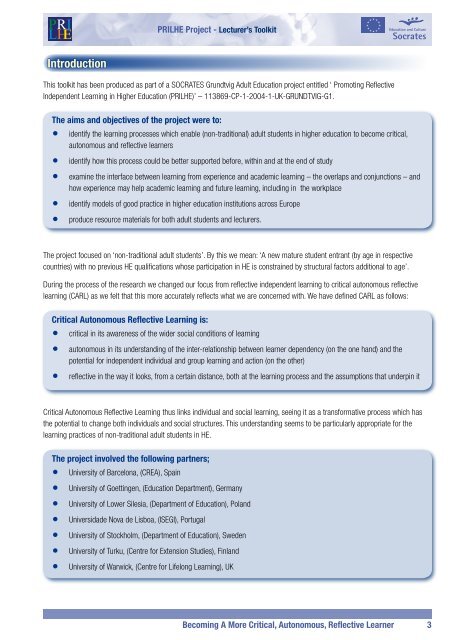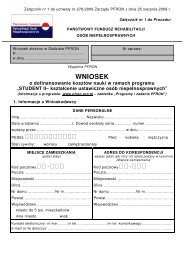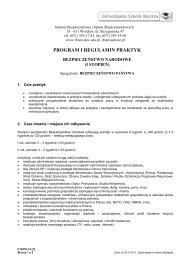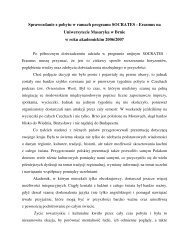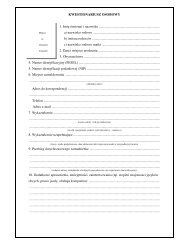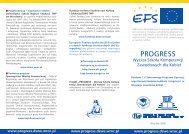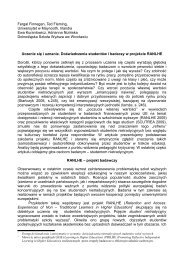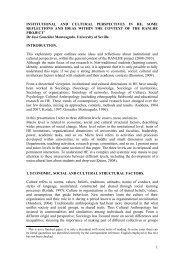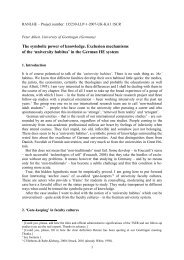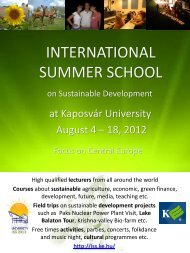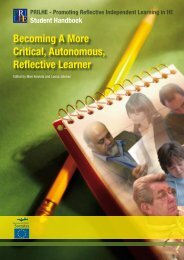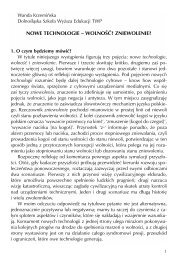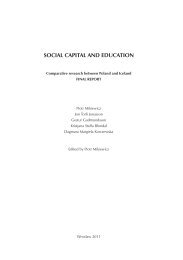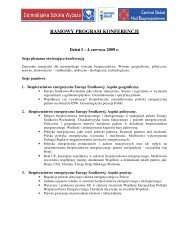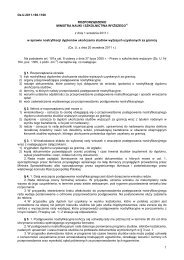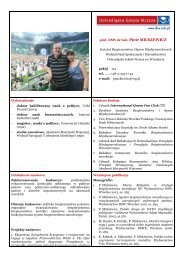Becoming A More Critical, Autonomous, Reflective Learner
Becoming A More Critical, Autonomous, Reflective Learner
Becoming A More Critical, Autonomous, Reflective Learner
You also want an ePaper? Increase the reach of your titles
YUMPU automatically turns print PDFs into web optimized ePapers that Google loves.
PRILHE Project - Lecturer’s Toolkit<br />
Introduction<br />
This toolkit has been produced as part of a SOCRATES Grundtvig Adult Education project entitled ‘ Promoting <strong>Reflective</strong><br />
Independent Learning in Higher Education (PRILHE)’ – 113869-CP-1-2004-1-UK-GRUNDTVIG-G1.<br />
The aims and objectives of the project were to:<br />
•<br />
identify the learning processes which enable (non-traditional) adult students in higher education to become critical,<br />
autonomous and reflective learners<br />
• identify how this process could be better supported before, within and at the end of study<br />
•<br />
examine the interface between learning from experience and academic learning – the overlaps and conjunctions – and<br />
how experience may help academic learning and future learning, including in the workplace<br />
• identify models of good practice in higher education institutions across Europe<br />
• produce resource materials for both adult students and lecturers.<br />
The project focused on ‘non-traditional adult students’. By this we mean: ‘A new mature student entrant (by age in respective<br />
countries) with no previous HE qualifications whose participation in HE is constrained by structural factors additional to age’.<br />
During the process of the research we changed our focus from reflective independent learning to critical autonomous reflective<br />
learning (CARL) as we felt that this more accurately reflects what we are concerned with. We have defined CARL as follows:<br />
<strong>Critical</strong> <strong>Autonomous</strong> <strong>Reflective</strong> Learning is:<br />
•<br />
•<br />
critical in its awareness of the wider social conditions of learning<br />
autonomous in its understanding of the inter-relationship between learner dependency (on the one hand) and the<br />
potential for independent individual and group learning and action (on the other)<br />
• reflective in the way it looks, from a certain distance, both at the learning process and the assumptions that underpin it<br />
<strong>Critical</strong> <strong>Autonomous</strong> <strong>Reflective</strong> Learning thus links individual and social learning, seeing it as a transformative process which has<br />
the potential to change both individuals and social structures. This understanding seems to be particularly appropriate for the<br />
learning practices of non-traditional adult students in HE.<br />
The project involved the following partners;<br />
• University of Barcelona, (CREA), Spain<br />
•<br />
•<br />
• Universidade Nova de Lisboa, (ISEGI), Portugal<br />
•<br />
•<br />
•<br />
University of Goettingen, (Education Department), Germany<br />
University of Lower Silesia, (Department of Education), Poland<br />
University of Stockholm, (Department of Education), Sweden<br />
University of Turku, (Centre for Extension Studies), Finland<br />
University of Warwick, (Centre for Lifelong Learning), UK<br />
<strong>Becoming</strong> A <strong>More</strong> <strong>Critical</strong>, <strong>Autonomous</strong>, <strong>Reflective</strong> <strong>Learner</strong>


